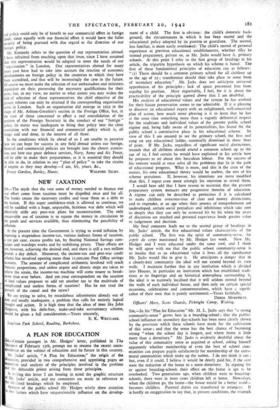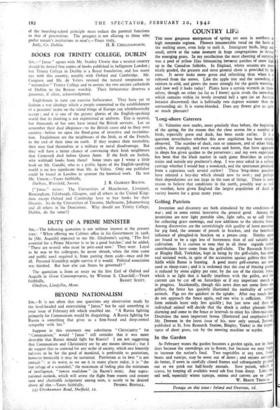Sot„-±-In his "Plan for Education" Mr. M. L. Jacks says
that "a strong 'community-sense " grows best in a boarding-school ; that the public- school influence on secondary day-schools has been most clearly shown by the provision which these schools have made for the cultivation of this sense ; and that the sense has the best chance of becoming strong " when the school day is longest, and where home is little more than a dormitory." Mr. Jacks is evidently doubtful about the value of this community sense as acquired at school, asking himself apparently whether membership of even the best of school com- munities can prepare pupils satisfactorily for membership of the extra- mural communities which make up the nation. I do not think it can ; but, even if it could, I believe it would be dearly paid for, if the cost were the reduction of the home to a mere dormitory. In arguing for or against boarding-schools their effect on the home is apt to be overlooked. Two generations ago, when children went to boarding- schools, there were in most cases children left at home. Nowadays, when the children go, the home—the house would be a better word— becomes childless. Parental duties are transferred to strangers. It is hardly an exaggerafion to say that, in present conditions, the triumph
of the boarding-school principle must reduce the parental functions to that of procreation. The prospect is not alluring to those who prefer nature's institutions to man's.---Yours truly,



























 Previous page
Previous page